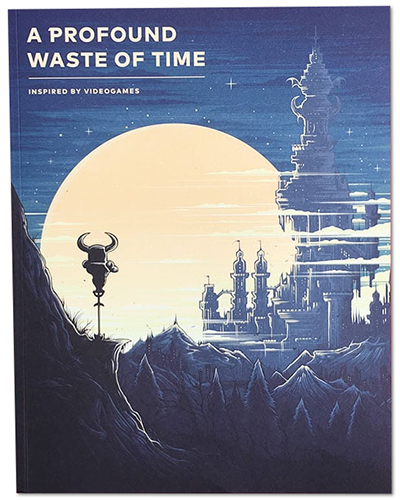 Caspian Whistler was just a kid when he bought his very first print magazine. It was a copy of Nintendo Official Magazine, and it launched a lasting curiosity around both games and print. Given that background, it’s not surprising that he’s merged his two loves into a publishing venture.
Caspian Whistler was just a kid when he bought his very first print magazine. It was a copy of Nintendo Official Magazine, and it launched a lasting curiosity around both games and print. Given that background, it’s not surprising that he’s merged his two loves into a publishing venture.
“I’ve always felt games were important but I was certainly quite conflicted about being passionate about them as a youngster, as I’d internalised the message that they weren’t good for me,” Whistler explained in an interview with Stack’s Grace Wang. “A natural consequence of growing up is that you become more at ease with what you’re interested in.”
In design school, Whistler was surprised by how little games came up for discussion in his coursework.
“You’d have thought with all the excellent examples of typography, UX and UI that can be found in games that they’d be more of a prominent topic in graphic design courses,” he explained. “Despite being the biggest entertainment industry in the world, games still have a way to go to permeate the same cultural and academic spaces that film and music do.”
He started his own conversation around the topic, with his A Profound Waste of Time (APWOT) e-zine; while the online version is now defunct, he’s recently released the crowd-sourced physical print magazine of the same name.
(In this era of micro-breweries, artisan bakeries and small-batch distilleries, the idea of gaining a rabid, dedicated audience for a niche idea is proving itself every day. The same principle – connecting with a small but mighty fan base with a shared passion – is finding success in independent niche magazine publishing. And many are using Kickstarter and similar crowd funding sites to do it.)
Whistler believes APWOT has something important to offer, explaining that the physical nature of print is much needed in the gaming world.
“Games have increasingly become digital-only experiences, with many never releasing in a tangible, physical format. While that’s a good thing in some ways, it also means that many games can’t be preserved properly. Often when you turn off a console and the screen goes black, any trace of these games’ existence disappears too.
“There’s something wonderful about seeing these digital worlds
represented in a physical medium like print.”
So what’s next for APWOT?
“It’s hard to say, but the response to the magazine has been phenomenal, and since we sold out shortly after launching, we’re now doing a reprint,” Whistler tells Wang. “I really believe in the project, and I want to build up as big an audience as we can right now before moving on to an issue two!”
For indie magazine lovers and gamers, reading APWOT will be anything but.
